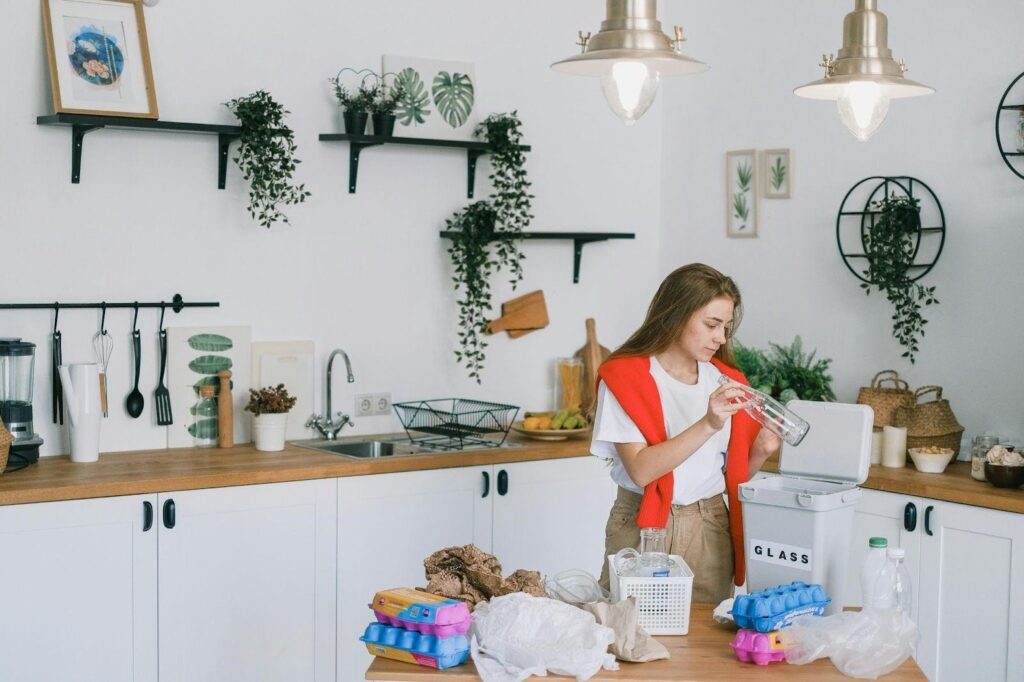Renovating your home is your chance to make it more comfortable and match your lifestyle needs. It’s also your opportunity to make it more sustainable. Many small changes can help reduce energy use, lower your utility bills, and make your home healthier for you and your family.
If you live in Northern Virginia, you’re in a great place to start. The area is a mixture of old and newer homes that offer you plenty of ways to blend comfort, style, and sustainability.
Free to use image from Pexels
Why a Sustainable Renovation Matters
Northern homes face humid summers, chilly winters, and rising energy costs. Making a few smart updates is your way to help your home stay comfortable year-round and cut down on wasted energy. It also adds value if you do decide to sell in the future.
Sustainability doesn’t mean having a full overhaul of your home; you can start with a few simple upgrades and work from there.
Start with an Energy Check
Before you begin, you need to look at the areas that might be losing energy in your home. Drafts, poor insulation, and old windows can all drive up heating and cooling costs.
A professional energy audit is going to show you exactly where you need to focus first. Fixing small issues like ceiling gaps or adding attic insulation can make a noticeable difference in comfort and your monthly bills.
Choose Energy-Efficient Windows and Doors
If your windows or doors are older, it’s definitely worth replacing them with new, energy-efficient models. It helps to control indoor temperatures and reduce noise.
Look for windows that are designed to keep heat inside during the winter and outside during the summer. If you have a historic home, you may want to consider interior storm windows, as they can change how it looks.
Use Eco-Friendly Materials
Choosing sustainable materials does not just help the planet; it also helps to create a home that is healthier. Reclaimed wood, recycled glass, and bamboo flooring are all great choices that last a long time. Reclaimed wood often has lower chemical emissions than many newer materials, which means the air inside your home can feel fresher.
For something unique, consider decorative tin ceiling tiles; they are made from recyclable materials, durable, and add character to your rooms. When repainting, pick no-VOC paint so that you can reduce any chemical fumes indoors.
Upgrade to Efficient Systems and Appliances
Heating, cooling, and water heating make up most of a home’s energy use. When it’s time to replace them, look for energy-efficient models. They may cost more upfront to begin with, but you can save money every month.
Smart thermostats are another easy way for you to cut back; they learn your routine and adjust temperatures automatically, which means that they help you save energy without thinking about it. You can check with Dominion Energy or other local utilities for rebate programs that make upgrades more affordable.
Add Renewable Energy if Possible
Solar panels are becoming more common across Virginia. They can reduce your electric bill and increase your home’s value. Although it is an investment to begin with, it can be worth it in the long run. The average cost of installing a 5 kW solar panel system in Virginia is approximately $13,635 before incentives.
Even if you start off small, adding a solar or home battery system can help your house rely less on the main grid. If rooftop solar isn’t an option for you, then community solar programs also let you share energy from local installations, so this could be something worth considering.
Plan for Long-Term Savings
Sustainable renovations are an investment that pays off over time. Energy-efficient upgrades help to lower your bills, reduce the maintenance you need to do, and make your home more comfortable.
If you are looking to buy a house in Northern Virginia, choosing one that’s already been updated can also save you time and money.
If you’re comparing locations, remember that Virginia may not be among the cheapest states to buy a home, but homes here hold their value very well, especially when they have already been built to be energy-efficient.
Final Thoughts
A sustainable renovation doesn’t have to be complicated at all. You can start off small with some easy changes, such as sealing any leaks or switching to efficient lighting, and then you can add bigger upgrades when you are ready.
Each step that you take makes your home more comfortable, more affordable for you to run, and better for the environment. Northern Virginia homeowners have every opportunity to make sustainability a part of their everyday living.

